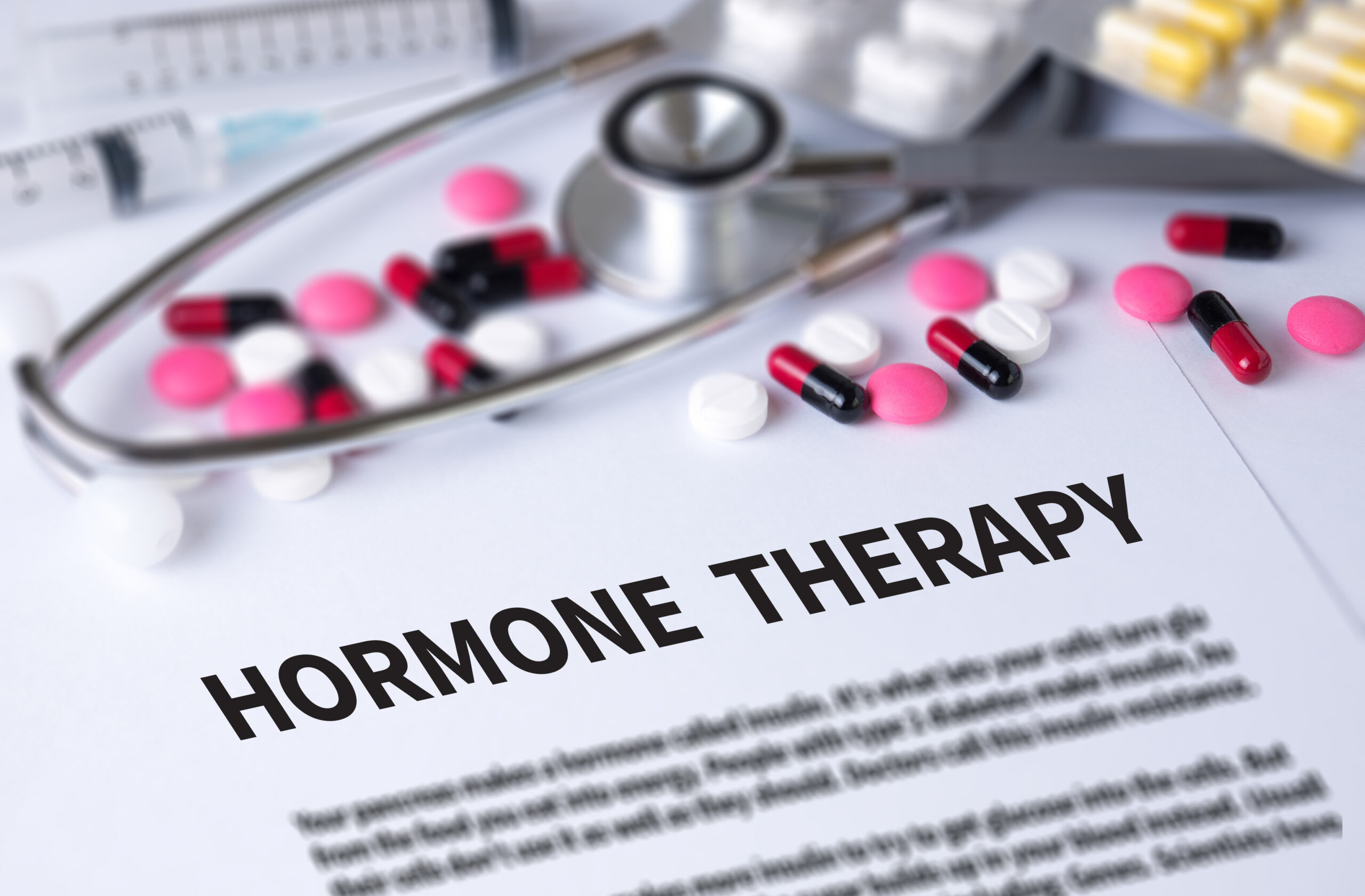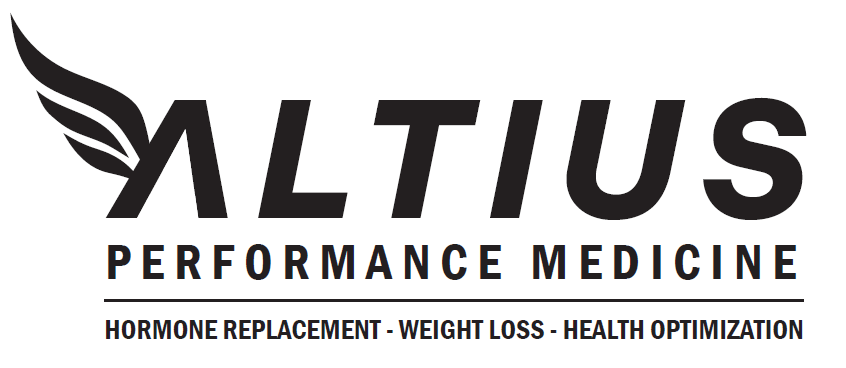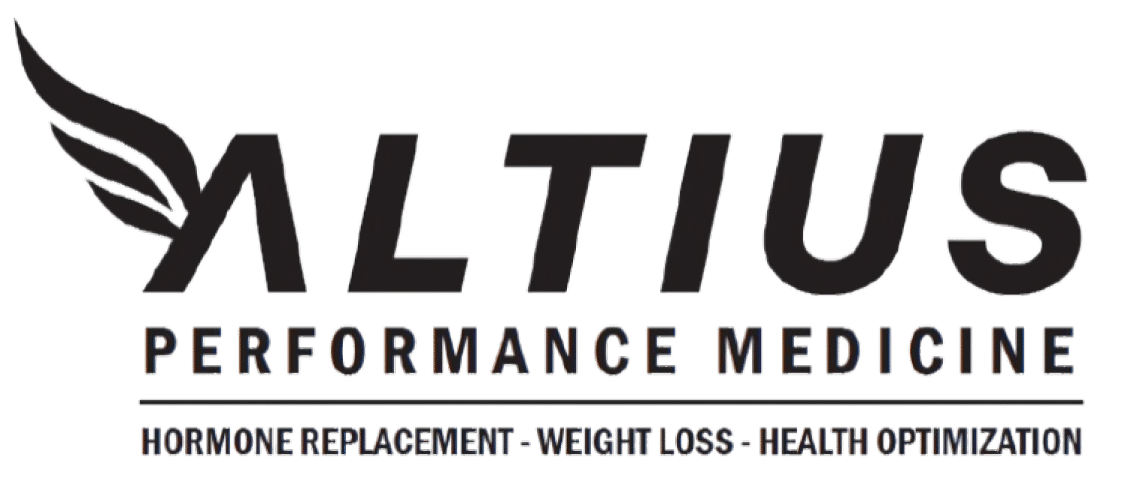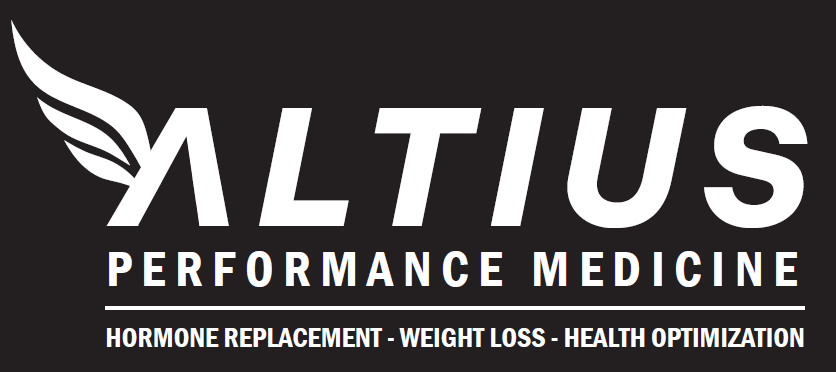Hormone Therapy with Altius Performance Medicine
Hormone therapy has become a widely discussed topic, especially among individuals seeking solutions for menopausal symptoms and testosterone deficiency. In Austin, Texas, Altius Performance Medicine offers a comprehensive and patient-centric approach to hormone therapy through their telemedicine clinic, serving not only Austin but also major urban centers such as San Antonio, Dallas, and Houston, as well as suburban and rural areas. This article will delve into the nuances of hormone therapy, its benefits, risks, and why Altius Performance Medicine is a leading provider in this field.
Hormone therapy was once a standard treatment for menopausal symptoms and long-term health protection in women. However, large clinical trials revealed potential health risks, prompting a reevaluation of its use. Today, hormone replacement therapy (HRT) involves the administration of medication containing female hormones to replace the estrogen that the body ceases to produce during menopause. This therapy is predominantly used to alleviate menopausal symptoms such as hot flashes and vaginal discomfort, and it has also been proven to prevent bone loss and reduce fractures in postmenopausal women.
Types of Hormone Therapy
Hormone Replacement Therapy (HRT) is primarily aimed at replenishing estrogen levels in women, especially those going through menopause. There are two main types of HRT: systemic hormone therapy and low-dose vaginal products.
Systemic Hormone Therapy involves administering a higher dose of estrogen, which is absorbed throughout the body. This type of therapy is versatile, available in various forms such as pills, skin patches, rings, gels, creams, or sprays. It is particularly effective in treating common menopausal symptoms, including hot flashes, night sweats, and mood swings. By ensuring a consistent and widespread delivery of estrogen, systemic hormone therapy helps alleviate the widespread effects of estrogen deficiency during menopause.
Low-Dose Vaginal Products are designed to address specific vaginal and urinary symptoms of menopause, such as dryness, itching, and discomfort during intercourse. These products deliver a minimal amount of estrogen, ensuring that it is absorbed primarily in the local vaginal area with minimal systemic absorption. This targeted approach helps alleviate vaginal and urinary discomfort without significantly affecting the rest of the body. Low-dose vaginal products are available in various forms, including creams, tablets, and rings.
Both types of HRT aim to improve the quality of life for menopausal women by addressing the physical discomforts associated with decreased estrogen levels. Systemic hormone therapy is suitable for women experiencing widespread menopausal symptoms, while low-dose vaginal products offer a localized solution for vaginal and urinary issues. By working with healthcare providers, women can determine the most appropriate type of HRT based on their specific symptoms and health profiles. Regular follow-ups and adjustments ensure that the chosen therapy continues to provide optimal benefits while minimizing potential risks.
For women who have not undergone a hysterectomy, estrogen is typically prescribed alongside progesterone or progestin to mitigate the risk of endometrial cancer, which can be stimulated by estrogen alone.
Despite the potential risks, hormone therapy can be highly beneficial for healthy individuals experiencing moderate to severe menopausal symptoms, those needing to prevent bone loss or fractures, or those with estrogen deficiency due to early menopause or ovary removal. HRT effectively relieves hot flashes, night sweats, and vaginal symptoms and helps protect against osteoporosis.

Altius Performance Medicine: Leading Hormone Therapy in Austin, Texas
Altius Performance Medicine stands out as a premier provider of hormone therapy in Texas, operating as a telemedicine clinic that offers care across the state. Their services encompass major urban centers and reach into suburban and rural areas, making high-quality hormone therapy accessible to a wide range of patients.
Altius Performance Medicine takes a personalized approach to hormone therapy, ensuring that treatment plans are tailored to each patient’s specific needs. This customization is crucial because the risks and benefits of hormone therapy can vary significantly from one individual to another.
In addition to hormone therapy for menopausal women, Altius Performance Medicine offers comprehensive Testosterone Replacement Therapy (TRT) for men experiencing low testosterone levels. Low testosterone can lead to symptoms such as fatigue, decreased muscle mass, erectile dysfunction, and reduced libido, which can significantly impact quality of life.
Reclaim Vitality with Testosterone Replacement Therapy
Testosterone is a vital hormone essential for maintaining muscle mass, bone density, and sex drive. Altius Performance Medicine’s TRT aims to address low testosterone levels in men through a range of treatment methods, including injections, gels, patches, and pellets. Each treatment plan is carefully crafted to meet the individual needs and lifestyle of the patient.
Testosterone Replacement Therapy (TRT) at Altius Performance Medicine effectively addresses various conditions associated with low testosterone levels in men. One primary condition treated with TRT is hypogonadism, where the body produces insufficient testosterone. This deficiency can lead to several distressing symptoms, including decreased sex drive, fatigue, reduced muscle mass, and decreased bone density. By administering synthetic testosterone, TRT can help restore normal testosterone levels, alleviating these symptoms and improving overall quality of life.
Another condition that can benefit from TRT is delayed puberty. This occurs when a boy’s natural pubertal development is slower than expected, which can significantly impact physical and emotional growth. TRT can stimulate the onset of puberty in boys with this condition, promoting the development of secondary sexual characteristics, increasing muscle mass, and enhancing bone density. This treatment helps not only with physical maturation but also with psychological well-being, improving self-esteem and reducing social isolation.
Erectile dysfunction (ED) is another condition that TRT can effectively treat, particularly when low testosterone levels are a contributing factor. ED is characterized by the inability to achieve or maintain an erection sufficient for sexual activity. TRT can improve sexual function by enhancing libido and the quality of erections. Men undergoing TRT often report increased sexual satisfaction and overall improvement in their intimate relationships.
At Altius Performance Medicine, our experienced healthcare providers tailor TRT to each patient’s unique needs, ensuring the safest and most effective treatment. We offer ongoing monitoring and support to optimize therapy outcomes, addressing each individual’s health concerns comprehensively. Through personalized care and advanced medical practices, we strive to enhance the well-being and vitality of our patients dealing with low testosterone levels. If you are experiencing symptoms related to low testosterone, schedule a consultation with Altius Performance Medicine to explore how TRT can benefit you.
TRT offers numerous benefits, including increased sex drive, improved mood, enhanced muscle mass and strength, better bone density, higher energy levels, and improved cognitive function. These improvements can significantly enhance the overall quality of life for men with low testosterone levels.
Why Choose Altius Performance Medicine?
Altius Performance Medicine is dedicated to providing the highest quality care for hormone therapy and testosterone replacement therapy. Here’s why they stand out:
- Customized Treatment Plans: Altius Performance Medicine tailors each treatment plan to the unique needs and goals of the patient, ensuring optimal results.
- Experienced Healthcare Professionals: The clinic’s team of experts is well-versed in the latest standards of practice, providing safe and effective hormone therapy.
- Cutting-Edge Technology: Altius Performance Medicine uses advanced equipment and techniques to deliver the best possible care.
- Comprehensive Care: In addition to hormone therapy, the clinic offers a range of treatments and services, including nutrition counseling and regenerative medicine, to promote overall health and wellness.
- Telemedicine Convenience: The telemedicine model makes it easy for patients across Texas to access high-quality care without the need for frequent office visits.
Take the Next Step Towards Better Health
Hormone therapy and testosterone replacement therapy can significantly enhance your quality of life by addressing hormonal imbalances and alleviating related symptoms. Altius Performance Medicine offers a personalized, patient-centric approach to these therapies, ensuring that each patient receives the best possible care tailored to their specific needs.
If you are experiencing symptoms of hormonal imbalance, such as menopausal discomfort or low testosterone, don’t wait to seek help. Contact Altius Performance Medicine today to schedule your free consultation and take the first step towards reclaiming your vitality and well-being. With their expertise and commitment to excellence, Altius Performance Medicine is your trusted partner in achieving optimal health through hormone therapy in Austin, Texas, and beyond.
Frequently Asked Questions (FAQs) about Hormone Therapy in Austin, Texas
What is hormone therapy?
Hormone therapy is a medical treatment that involves the administration of hormones to address hormonal imbalances in the body. It is commonly used to treat menopausal symptoms in women and low testosterone levels in men.
Who can benefit from hormone therapy?
Hormone therapy can benefit individuals experiencing symptoms of hormonal imbalance. This includes women undergoing menopause who suffer from hot flashes, night sweats, and vaginal discomfort, as well as men with low testosterone levels experiencing fatigue, decreased muscle mass, and erectile dysfunction.
What types of hormone therapy are available for women?
For women, there are two main types of hormone therapy: systemic hormone therapy and low-dose vaginal products. Systemic hormone therapy involves taking estrogen in pill, skin patch, ring, gel, cream, or spray form to treat menopausal symptoms. Low-dose vaginal products, available as cream, tablet, or ring, are used to treat vaginal and urinary symptoms of menopause.
What is testosterone replacement therapy (TRT)?
Testosterone replacement therapy (TRT) is a treatment designed to address low testosterone levels in men. It involves the administration of synthetic testosterone to increase the body’s testosterone levels, improving symptoms such as low sex drive, fatigue, and decreased muscle mass.
What conditions can testosterone therapy treat?
Testosterone therapy can treat conditions such as hypogonadism, delayed puberty, and erectile dysfunction. It can also help improve bone density, muscle mass, and overall vitality in men with low testosterone levels.
What are the different methods of administering testosterone therapy?
Testosterone therapy can be administered through various methods, including:
- Injections: Administered every two to four weeks.
- Gels: Applied daily to the skin.
- Patches: Applied daily to the skin.
- Pellets: Inserted under the skin and release testosterone over several months.

What are the potential risks and side effects of hormone therapy?
The risks and side effects of hormone therapy can vary depending on the type, dose, and duration of treatment. Potential risks include heart disease, stroke, blood clots, and breast cancer for women on estrogen-progestin therapy. Side effects of testosterone therapy can include acne, fluid retention, mood swings, and an increased risk of blood clots, sleep apnea, and prostate cancer.
How do I know if hormone therapy is right for me?
It’s important to consult with a qualified healthcare provider to determine if hormone therapy is right for you. Your provider will evaluate your medical history, symptoms, and overall health to assess the potential benefits and risks of hormone therapy for your specific situation.
Can hormone therapy be customized to individual needs?
Yes, hormone therapy should be tailored to each individual’s needs. Your healthcare provider will work with you to find the best product, delivery method, and dosage to address your specific symptoms and health concerns. Regular follow-up care is essential to ensure the benefits of hormone therapy continue to outweigh the risks.
Is Altius Performance Medicine a telemedicine clinic?
Yes, Altius Performance Medicine operates as a telemedicine clinic, providing care to patients across the state of Texas. Our services extend to major urban centers, including Austin, San Antonio, Dallas, and Houston, as well as suburban and rural areas.
How can I schedule a consultation with Altius Performance Medicine?
You can schedule a consultation with Altius Performance Medicine by visiting our website or calling our office. We offer free consultations to discuss your symptoms and determine if hormone therapy is an appropriate treatment option for you.
What makes Altius Performance Medicine different from other clinics?
Altius Performance Medicine stands out due to our personalized approach to hormone therapy, experienced healthcare professionals, and commitment to patient care. We offer customized treatment plans tailored to each individual’s needs and provide ongoing monitoring and support to ensure the best possible outcomes.
What should I expect during my consultation with Altius Performance Medicine?
During your consultation with Altius Performance Medicine, you will discuss your symptoms, medical history, and overall health with one of our experienced healthcare providers. They will evaluate whether hormone therapy is suitable for you and develop a personalized treatment plan tailored to your specific needs.
Are there alternative treatments if I can’t take hormone therapy?
Yes, there are alternative treatments available if hormone therapy is not suitable for you. For menopausal symptoms, lifestyle changes, nonhormonal medications, and vaginal moisturizers or lubricants may provide relief. For men with low testosterone, addressing underlying health issues and lifestyle changes may help improve symptoms.
How often should I have follow-up appointments while on hormone therapy?
Regular follow-up appointments are essential to monitor your progress and ensure that the benefits of hormone therapy continue to outweigh the risks. Your healthcare provider will recommend the frequency of follow-up appointments based on your specific treatment plan and needs.
What lifestyle changes can complement hormone therapy?
Healthy lifestyle choices can enhance the effectiveness of hormone therapy. Regular physical activity, a balanced diet, maintaining a healthy weight, avoiding smoking, limiting alcohol, managing stress, and addressing chronic health conditions are all important factors in improving your overall health and well-being.
If you have any additional questions or need more information, feel free to contact Altius Performance Medicine. Our team is here to help you achieve optimal health and well-being through personalized hormone therapy solutions.



